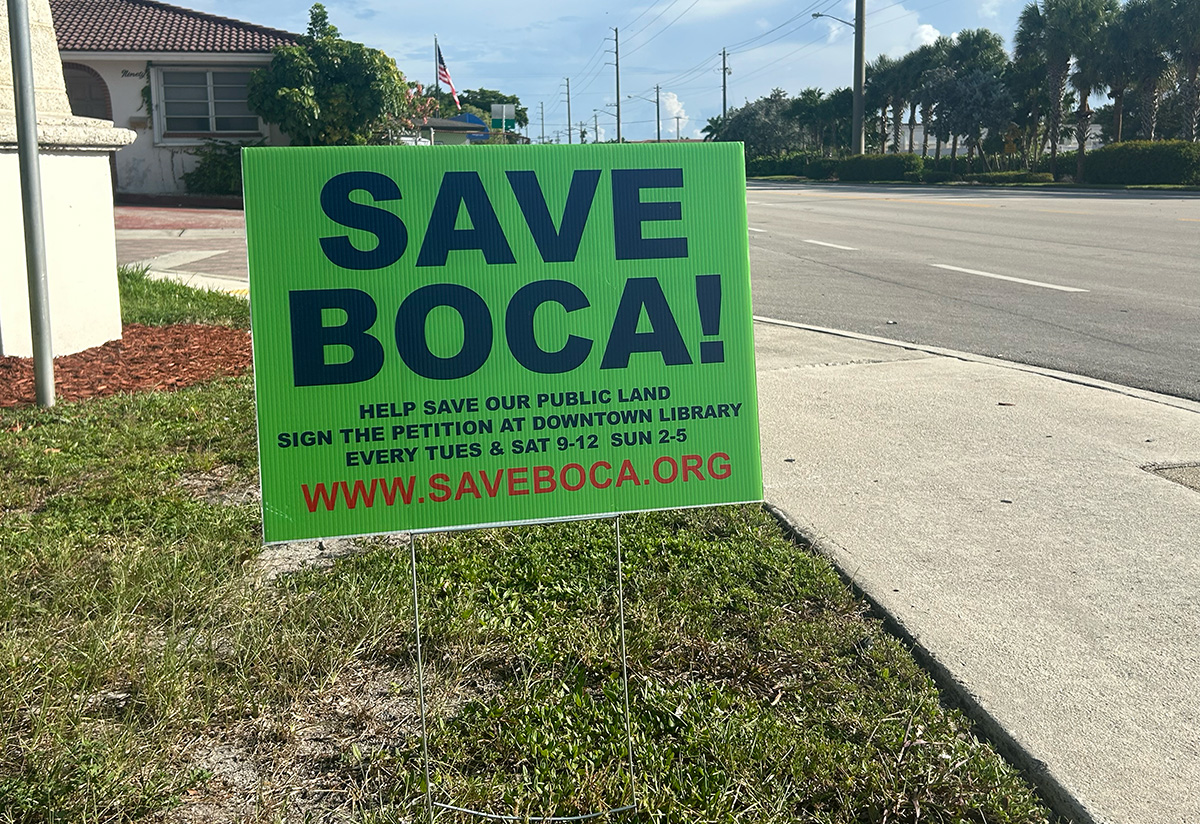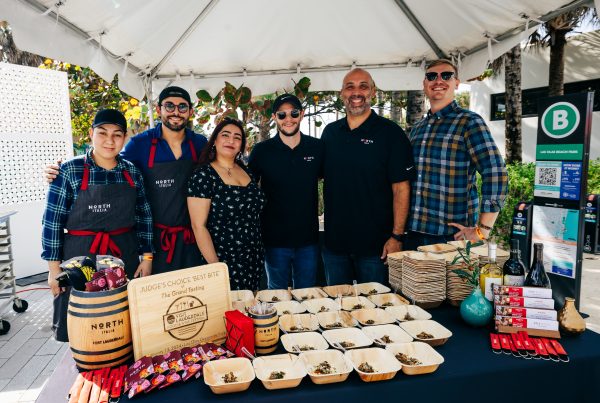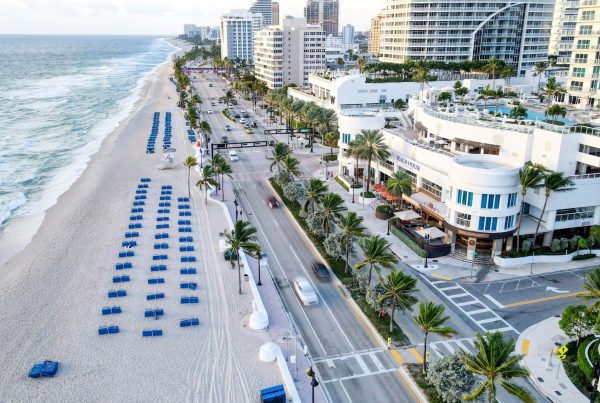My Tuesday post addressed many of the issues involved in the petition campaign to block Boca Raton’s downtown redevelopment project. Today’s post will be a follow-up.
Recalling a similar petition
You can’t think about this petition drive without thinking of a similar campaign in 2016. Then, as now, residents sought to overturn a policy decision by the city council.
Nine years ago, the target was the council’s purchase in 2009 of the Wildflower property on the Intracoastal Waterway at the Palmetto Park Road bridge with the intent of leasing it to a commercial entity and making money for the city. Once the financial crisis had passed, the council chose to negotiate a lease with Hillstone Restaurant Group, which operates the successful Houston’s near Town Center Mall.
As negotiations dragged on into 2016, opponents organized. The restaurant, they claimed, would bring noise and traffic. The site had been home to the boisterous Wildflower nightclub. By then, the land was vacant.
Opponents gathered enough signatures to place an ordinance before the council. The ordinance restricted “all city-owned land” along the Intracoastal to “public recreation, public-boating access, public streets and city stormwater uses.” The council rejected the ordinance, which sent it to a vote in November. It passed with nearly 70%.
The result was no surprise. Ordinance supporters had claimed that the Greater Boca Raton Chamber of Commerce wanted to privatize waterfront parks. That claim was not just misleading; it was false.
With the restaurant dead, the city turned to making the 2.2-acre site into a park. Petition supporters claimed that, with 4-acre Silver Palm Park—home to the city’s boat launch—on the south side of the bridge, Boca Raton could have something to rival Riverwalk in San Antonio.
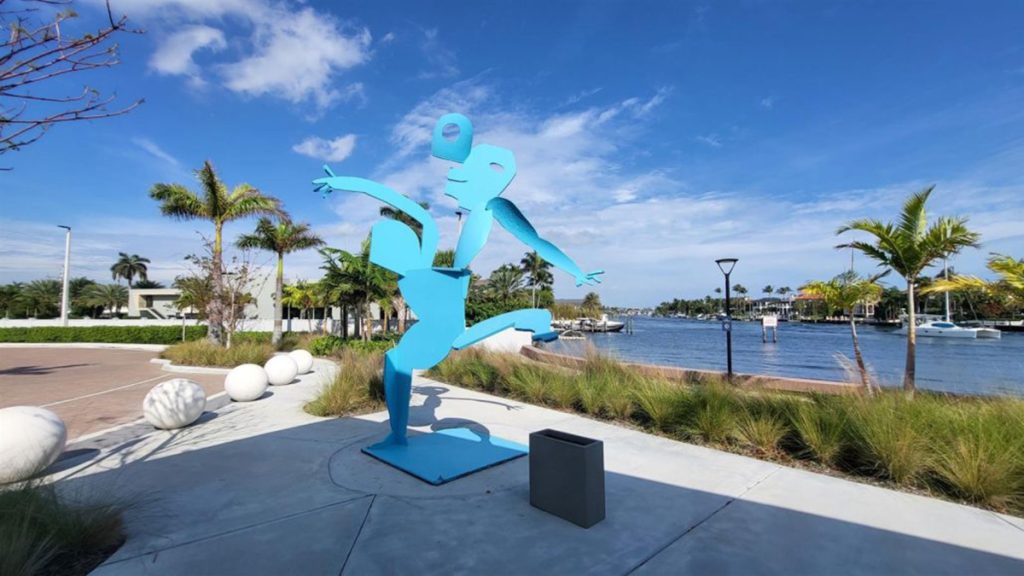
Hardly. Almost three years after it opened, Wildflower Park—from my observation and all reports—is a glorified homeless encampment. Total cost? A city spokeswoman said the cost of the combined project was roughly $10.5 million. By any measure, Wildflower Park qualifies as a boondoggle.
Now, city officials are seeking ways to “activate” the site. A restaurant, of course, would have done that. A restaurant also would have been making lease payments to the city, though no doubt with a break during the pandemic.
Deputy City Manager Chrissy Gibson said the city soon will begin painting the underpass between the two parks. That work was held up because the county controls the walkway under the bridge. New public art is coming. Next month, staff will offer the council ideas on programs to draw people.
None of that, though, may solve the basic, long-term problem: There isn’t enough to draw lots of people and justify the huge expense. While the Wildflower ordinance supporters got what they wanted, it wasn’t good for the city.
Lingering questions for downtown campus

Having said that, there are aspects of the downtown redevelopment plan that leave it open to questions.
City officials call the $1 billion-plus project a “transit-oriented development,” or TOD. The designation applies to mixed-use projects that can obtain higher densities because they are near public transportation. That proximity supposedly will result in fewer car trips and less traffic.
To hear council members, the primary transit option is Brightline. The station is within those 30 downtown acres. But Brightline is a pricey option for potential commuters.
In addition, there’s the question of Brightline’s future. The company just missed a bond payment. Though Brightline is not in default, the Wall Street Journal reported that some bondholders are consulting lawyers. Florida East Coast Railway has sued Brightline, claiming that the company is negotiating “clandestinely” with counties on a cheaper transit service farther east than Tri-Rail. Florida East Coast owns the tracks.
Brightline’s contract with Boca Raton does not specify how many stops the company will have in the city. It says only that station hours will be similar to those in Fort Lauderdale. Mayor Scott Singer said this year that the station “has exceeded expectations,” but he offered no metric to support that claim.
Another key issue is what parts of the project would be built when, known as phasing. If the council approves the final master plan in October, would it all be built? The estimated construction timeline spans roughly a decade.
Since the key public parts—City Hall, the community center, parks—would be built first, developer Terra/Frisbie would seem incentivized to complete everything. Those later, private segments would generate lease payments to the city.
And would Terra/Frisbie stick to the plan? City Manager George Brown notes that if the developer wanted to modify the master plan, council approval would be necessary.
Council members have not discussed these two issues very much. Perhaps there will be more discussion between now and that scheduled October vote.
Delray responds to state DOGE

Delray Beach has submitted its second round of responses to the state version of President Trump’s Department of Government Efficiency, or DOGE.
Gov. Ron DeSantis formed a state version of the group in March. A month later, Delray Beach and Boca Raton received letters asking if they had gone through any financial emergencies in the last five years. They said no, but it was clear that DOGE wasn’t finished with them or any other city or county.
Sure enough, Delray Beach got a follow-up letter on July 18. It sought information about budget expenditures compared to population increases over the last four years. A week later, Chief Financial Officer Henry Dachowitz wrote that revenues had gone from $222.2 million to $294.2 million, with the largest increases going for police and fire services.
“We trust you will find this information helpful and responsive,” Dachowitz wrote. DOGE officials should contact him if they “would like more information or have further questions.”
Very likely, they will. DeSantis has stated that he wants to abolish property taxes—the main source of revenue for local government. He seems unconcerned about details and ramifications, since he vetoed $1 million for a study of the idea that would have shown a need to dramatically raise the sales tax to offset the lost revenue.
As part of that campaign, DeSantis and his people are targeting local governments—especially those with Democrats in leadership positions—supposedly to show that they are wasting money and taxing residents too much. Delray Beach might escape the worst, since the city has a Republican mayor, but there are no guarantees.
I’ll have more if Delray Beach hears back from DOGE.
Rob Long gets challengers for House seat
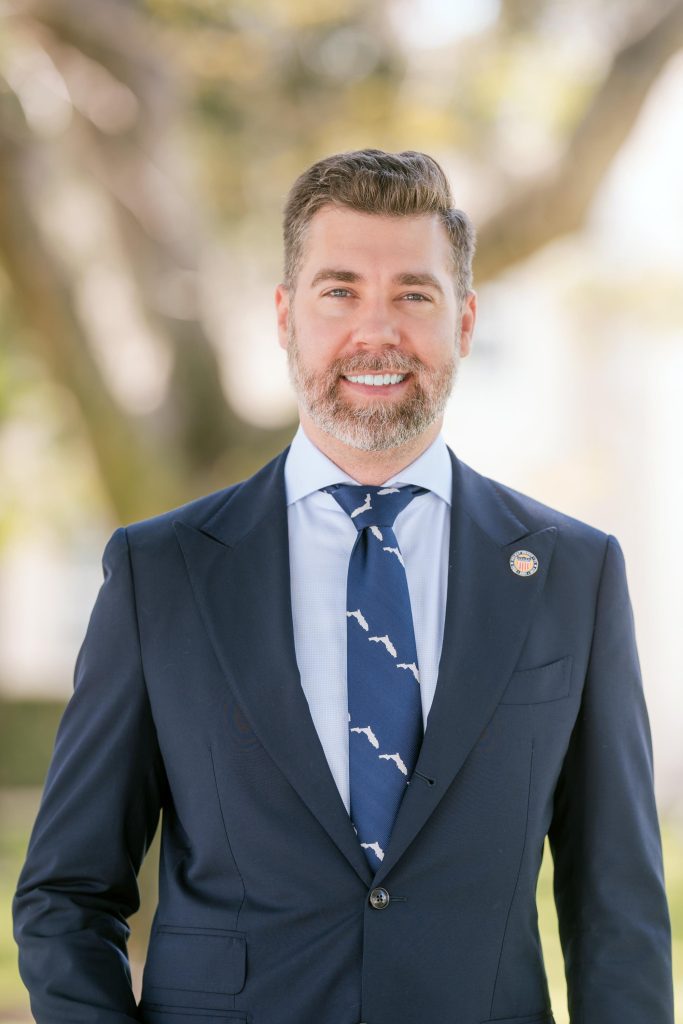
Delray Beach City Commissioner Rob Long has company in his bid to succeed the late State Rep. Joe Casello.
Two Republicans have filed for the Democratic-leaning seat, which includes Boynton Beach as well as Delray Beach. One is William Reicherter, who got 44% against Casello last year. The other is Maria Zack. According to the Florida Politics website, she is a QAnon conspiracy theorist.
Long will not face a primary, since the fourth candidate, Karen Yeh, is registered as No Party Affiliation. The GOP primary will take place Sept. 30, with the runoff on Dec. 9. The legislative session begins about a month later. Whoever wins will have to do it all over again for the 2026 election.
Preliminary work begins on Pompey Park renovation

Preliminary work has begun on one of Delray Beach’s most important projects—the renovation of Pompey Park.
According to Public Works Director Missie Barletto, the city will create a website and a social media account through which residents can follow the progress. Public meetings will take place this month and in October. Barletto estimates that construction will begin in February or March, with opening scheduled for February 2027.

